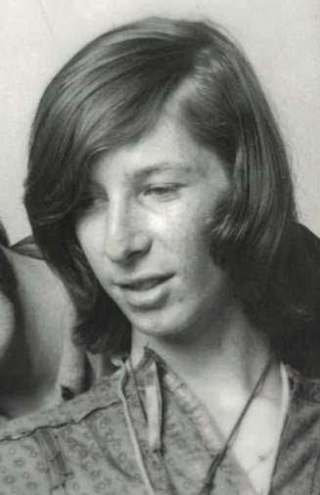
Bruce Palmer was a Canadian musician best known as the bassist in the folk rock band Buffalo Springfield, who were inducted into the Rock and Roll Hall of Fame in 1997.

"Bitter Sweet Symphony" is a song by the English rock band the Verve, released on 16 June 1997 by Hut Recordings and Virgin Records as the lead single from their third album, Urban Hymns. It was produced by Youth at Olympic Studios, London.

"Lucky Man" is a song by English rock band the Verve. It was written by singer Richard Ashcroft. The song was released as the third single from the band's third studio album, Urban Hymns. It was released on 24 November 1997, charting at number seven on the UK Singles Chart. The song was the band's second top-20 hit on the Billboard Modern Rock Tracks chart in the United States, climbing to number 16. In Canada, "Lucky Man" peaked at number 25 on the RPM 100 Hit Tracks chart. It also reached the top 40 in Finland, Iceland, Ireland, and New Zealand.

"The Drugs Don't Work" is a song by English rock band the Verve. The song was written by Richard Ashcroft and is featured on their third studio album, Urban Hymns. It was released on 1 September 1997 as the second single from the album, debuting at number one on the UK singles chart. The beginning of the video shows the band walking down the street, following on from the end of "Bitter Sweet Symphony".
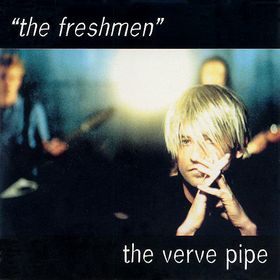
"The Freshmen" is a song by American alternative rock band the Verve Pipe. Released in January 1997 as the third single from their second studio album Villains, the song became the band's breakthrough hit and is the group's highest-charting single, peaking at number five on the US Billboard Hot 100, number six in Canada, and number 28 in Australia.

"Sonnet" is a song by the English rock band the Verve and is featured on their third album, Urban Hymns. It was released on 2 March 1998 as the final single from the album. The ballad has the same instrumental layout as "The Drugs Don't Work", consisting of acoustic and electric guitars backed up with a string section mainly consisting of violins.

The discography of English alternative rock band The Verve consists of four studio albums, two compilation albums, two video albums, three extended plays, fourteen singles, two promotional singles and fifteen music videos.

Perfume: Complete Best is the first greatest hits album by Japanese girl group Perfume. It was released on August 2, 2006 by Tokuma Japan Communications. The greatest hits album includes work released from their previous record label Bee-hive Records, and previous work with Tokuma Japan Communications. The album also included b-side and one newly recorded track. It was released in three different formats; a CD and DVD bundle, a digital release, and a double 12-inch vinyl LP. The LP was released through Perfume's February 2016 box set Perfume Complete LP Box, and a singular limited release.

Readings by Jack Kerouac on the Beat Generation is the third and final spoken word album by the American novelist and poet Jack Kerouac, released in January 1960 on Verve Records. The album was recorded during 1959, prior to the publication of Kerouac's sixth novel, Doctor Sax.

Canadian singer Diana Krall has released 15 studio albums, one live album, one compilation album, one extended play, four singles, 16 promotional singles, three video albums, and seven music videos. Throughout her career, Krall has won numerous awards and has sold 16 million albums, establishing herself as one of the best-selling artists of her time.

"Girls Talk" is a new wave song written by Elvis Costello and first recorded by Dave Edmunds in 1978. Costello gave an early version of the song to Edmunds, who reworked the song and released it on his album Repeat When Necessary. Edmunds' version peaked at number four on the UK Singles Chart and number 12 in Ireland, becoming one of Edmunds' most successful career singles.
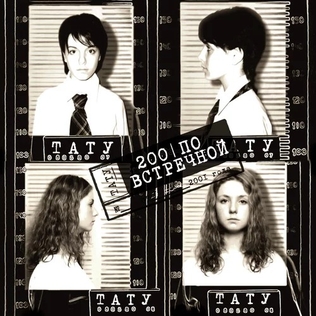
200 Po Vstrechnoy is the debut studio album by Russian duo t.A.T.u. It was released by Neformat Records and Universal Music Russia on 21 May 2001 in Russia, Ukraine, and Poland, and was re-released by Universal Music Russia worldwide on 23 June 2003. A re-released version featured new tracks and a new artwork, which was released on 15 February 2002. Created by manager and producer Ivan Shapovalov after the success of members Yulia Volkova and Lena Katina in the band Neposedy, the group managed to sign a deal with Universal Music Russia to produce their first album. It was recorded between 1999 and 2000, and was produced and co-composed by Shapovalov.
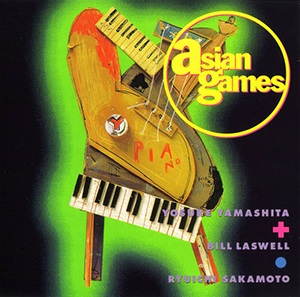
Asian Games is a collaborative album by Yōsuke Yamashita, Bill Laswell and Ryuichi Sakamoto. It was released on May 26, 1993, by Verve Forecast Records.

"Didn't We" is a song recorded by Irish singer and actor Richard Harris for his debut studio album, A Tramp Shining (1968). It was written and produced by Jimmy Webb and originally served as the B-side to Harris' 1968 single "MacArthur Park". "Didn't We" was then distributed as the record's single by Dunhill Records, also in 1968. A traditional pop song, Harris sings about his life in the past. Commercially, it charted at lower positions of both the United States and Canada, and in the higher ranks of their Adult Contemporary component charts. Harris featured "Didn't We" on several of his greatest hits albums, including The Richard Harris Collection: His Greatest Performances from 1973. That same year, the song was reissued as a promotional single paired alongside his 1971 single "My Boy".
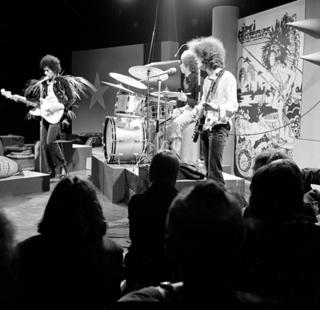
Jimi Hendrix (1942–1970) was an American guitarist and singer-songwriter whose career spanned from 1962 to 1970. He appeared in several commercially released films of concerts and documentaries about his career, including two popular 1960s music festival films – Monterey Pop (1968) and Woodstock (1970). A short documentary, Experience (1968), also known as See My Music Talking, was also screened.

"All in Love Is Fair" is a song by American singer-songwriter Stevie Wonder recorded for his sixteenth studio album, Innervisions (1973). Written and produced by Wonder, it was released as a 7" single in Brazil in 1974. The song is a pop ballad with lyrics that describe the end of a relationship through the use of clichés. Critical reaction to the song has been varied: Matthew Greenwald of AllMusic wrote that it was among Wonder's "finest ballad statements", but Robert Christgau felt that the singer's performance was "immature". Wonder has included it on several of his greatest hits albums, including the most recent, 2005's The Complete Stevie Wonder.

Silver Landings is the sixth studio album by American singer-songwriter Mandy Moore, released on March 6, 2020, via Verve Forecast Records. It is her first studio album in 11 years, following her fifth studio album Amanda Leigh (2009). Moore was due to promote the album with a North American tour, before it was postponed due to the COVID-19 pandemic.

















